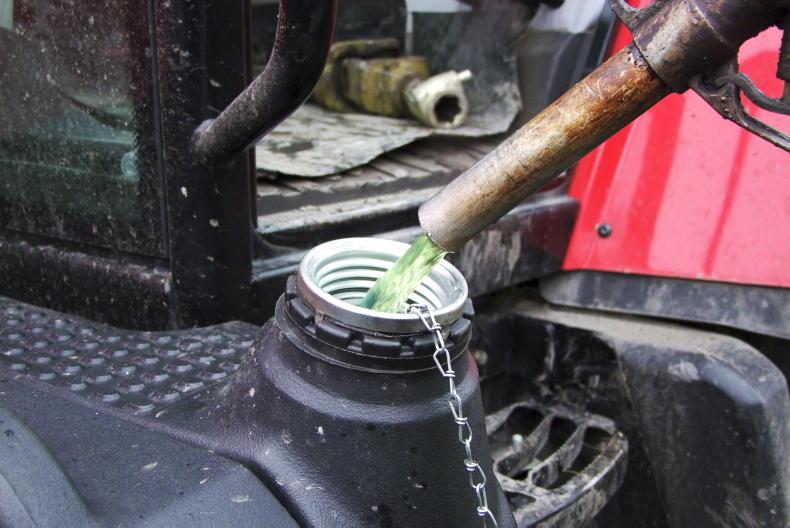Energy costs are going to remain front and centre for the winter as global supplies will remain tight. For farmers, there is going to be an added sting in the tail as diesel may become extremely scarce over the winter.
The ban on supplies from Russia will be fully enforced from February 2023, with the ending of that source coming in the middle of a winter Europe is facing into with already low stocks of fuel.
With Russia accounting for more than half of Europe’s imports of the fuel, according to data from industry analysts Vortexa, a cut-off will mean 800,000 barrels a day will have to be sourced elsewhere.
Recent trends show that more of the fuel is being sourced from the Middle East and Asia, while imports from the US have slowed in the last few months. However, those countries will quickly run into capacity constraints. The International Energy Agency warned this month that European, South American and African importers will be competing for a smaller pool of available diesel over the coming months. There are large refinery projects coming online in Kuwait, Nigeria and Mexico by the end of 2023, but those will do nothing to improve conditions this winter.
Adding to the pressure are the high prices and difficulty securing supply that have already happened since Russia’s invasion of Ukraine. This means that global stocks of fuel are much lower than they usually would be at this time of year – the summer is traditionally used to increase inventories.
For Ireland, the problem seems to be particularly acute, with overall oil and petroleum stocks trending lower.
Emergency fuel resources
There even seem to be problems with the levels of Ireland’s emergency fuel reserves.
European legislation requires member states to have 90 days of emergency fuel stocks on hand. Latest data from Eurostat, the European Statistics Agency, shows that Ireland only had 80 days of emergency supply on hand at the end of June, the lowest of any EU member state.
Dr Frank Bergin, CEO of Ireland’s National Reserve Agency, disputed the number, saying that Ireland has 85 days of emergency supply on hand, and will replenish that shortfall by end of the first quarter of 2023.
Inconsistency
A spokesperson for the Department of the Environment, Climate and Communications said that countries were requested by the IEA and EU not to replenish stocks pending further guidance, to avoid putting pressure on the oil markets.
Overall, it is hard to find much reason for optimism over diesel fuel prices over the coming months.
Javier Blas, author of The World for Sale and energy expert at Bloomberg, said that the price to pay for plentiful diesel would be global recession. A rapid economic slowdown would certainly reduce demand and make diesel more plentiful. That does, however, seem like a lot of cloud for not much silver lining.






 This is a subscriber-only article
This is a subscriber-only article










SHARING OPTIONS: